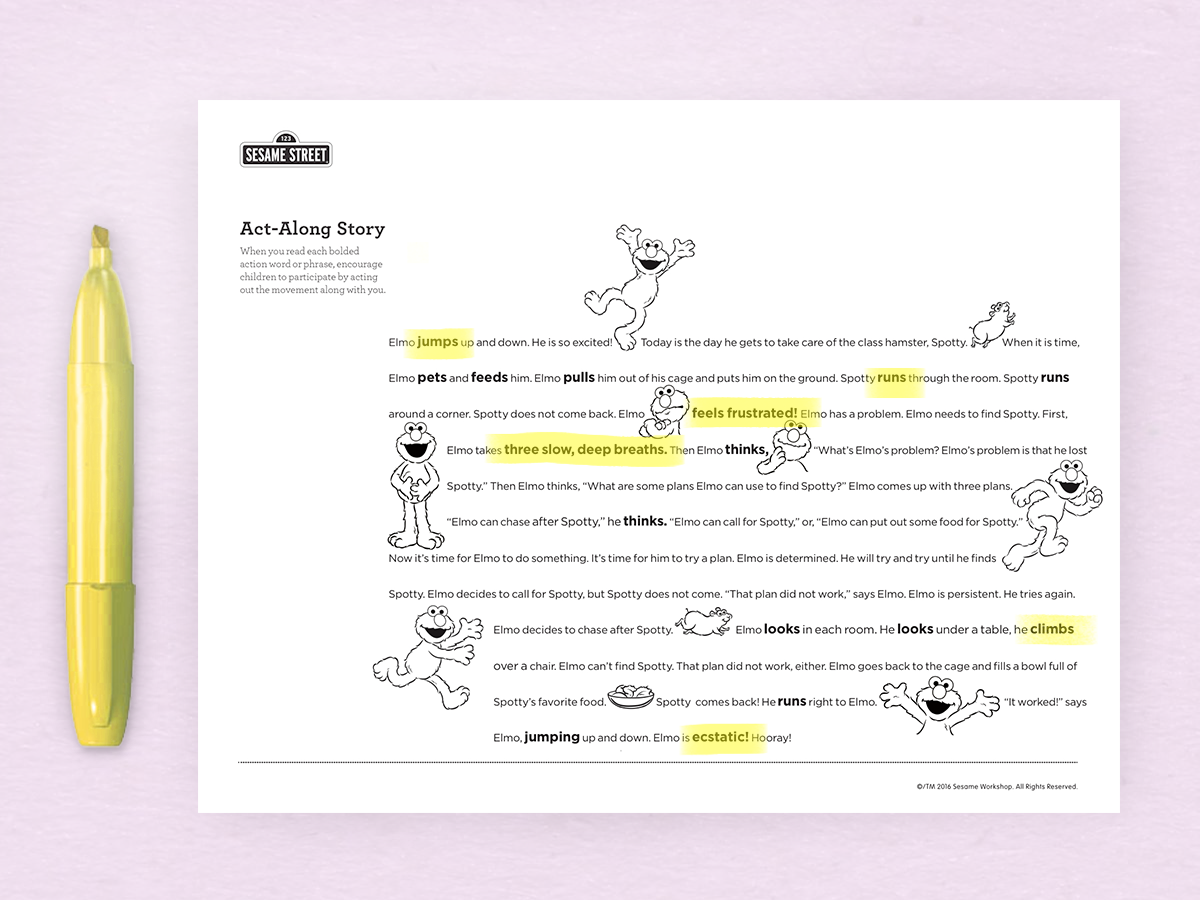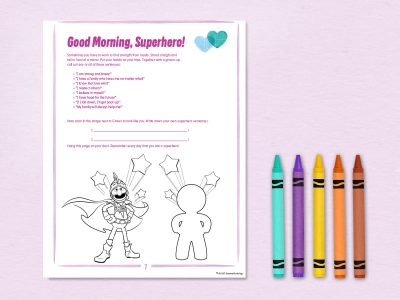
Sesame Strong, Session 5: Everyday Challenges
Offer calm-down strategies and time to practice.
Welcome to Session 5, and congratulations! You’re half way through the program!
This week is all about helping kids cope with and work through frustrating situations and big feelings. You’ll learn strategies to share with parents and explore resources they can use to practice. This mini-session will help you remind caregivers that they can help children work through their big feelings and build persistence.
Download this week’s overview and the caregiver take-home packet.
Remember: As with all Sesame Strong bundles, you can share the messages, strategies, and resources with caregivers in many ways (not just in a workshop setting). Keep it simple, and do what works for you!
1. Gather & Share
Gather & Share
- Consider beginning your parent mini-session with a mindfulness moment.
- Check in. How did the Sesame Strong activities go last session? What was your favorite resource? Any challenges? Questions?
- Introduce this session’s Big Idea (the “why”): Learning how to cope with frustration helps children overcome obstacles.
- Then, share this session’s Strategy Spotlight (the “how”): Self-talk.
Explain that positive self-talk is one strategy for getting through a frustrating moment. Affirming phrases—I can do this, I can keep trying, I am strong—can help kids stay focused not only on the task at hand, but also and on the path toward their goal. Remind parents that when grown-ups model this behavior, kids are more likely to practice positive self-talk too.
This week’s caregiver resources support our theme by providing opportunities to explore, read, and play together. The next sections outline how you might review these resources with parents, and how they can use them at home with their children.
2. Me Time
Me Time
Frustration is a powerful emotion that is very familiar to children—and parents on the receiving end! Assure caregivers that there are strategies they can use to help their kids work through frustration.
Distribute the Patience & Persistence article, and have a group discussion with caregivers about the strategies offered in the article. You might prompt parents with:
- How does teaching kids the phrase, “I just can’t do it yet” remind them that learning something new takes time and practice?
- How does the strategy Breath, Think, Do help children work through their frustrating moments?
- How does patience and embracing mistakes help children practice persistence?
3. Explore Together
Explore Together
Talk with caregivers about the power of “yet” to help children be more persistent. If there’s something they can’t do, it won’t always be that way! Ask parents to watch the Elmo Doesn’t Give Up video with their children. Encourage them to remind their child of something they can do now that took practice—like writing their name or riding a tricycle.
Remind parents: just like catching a ball, patience and persistence are skills kids can learn with practice. Encourage parents to celebrate their child’s small steps and effort at home—perhaps with a dance party or a special meal.
Ask caregivers to watch Don’t Give Up with their kids and sing along! Then they can ask children, What new thing are you learning to do?
4. Read Together
Read Together
Stories can help kids build skills. This act-along story, for example, can help children build emotional vocabulary and practice ways to calm down. And it’s a fun way to get moving. At home, parents and kids can stand up and move along with Elmo.
Suggest that parents ask kids, How did Elmo solve his problem? What did he do when he felt frustrated? Remind parents that when tough feelings come up, it’s a great idea to “press pause” and give kids a chance name and work with their feelings.
5. Play Together
Play Together
As you share this Grover coloring page with parents to color together with children, talk about its message: Sometimes we have to find strength from inside. Affirming statements about ourselves—the ones that make us feel strong and really good!—help us find that strength.
Invite parents to model positive self-talk as they draw and color together with children. When I’m frustrated and want to give up, I say to myself, “I believe in myself! I can do this!”
6. Friendly Reminders & Notes for Next Time
Friendly Reminders & Notes for Next Time
Remind
- Questions are always welcome. Share with parents the best way to contact you with questions.
- Review the date and time for next session’s mini-workshop.
- Thank parents for their partnership and participation.
Reflect
- What went well?
- What could I do differently for the next session?
- Who might I ask for help?


